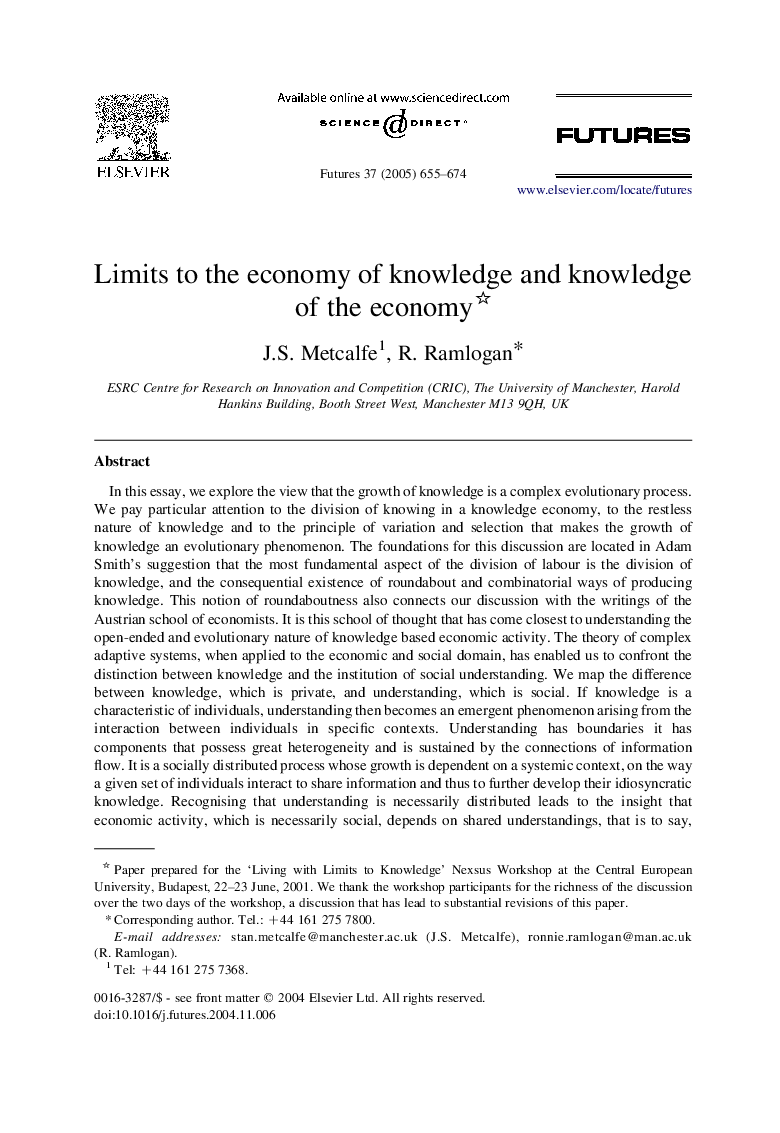| Article ID | Journal | Published Year | Pages | File Type |
|---|---|---|---|---|
| 10492134 | Futures | 2005 | 20 Pages |
Abstract
In this essay, we explore the view that the growth of knowledge is a complex evolutionary process. We pay particular attention to the division of knowing in a knowledge economy, to the restless nature of knowledge and to the principle of variation and selection that makes the growth of knowledge an evolutionary phenomenon. The foundations for this discussion are located in Adam Smith's suggestion that the most fundamental aspect of the division of labour is the division of knowledge, and the consequential existence of roundabout and combinatorial ways of producing knowledge. This notion of roundaboutness also connects our discussion with the writings of the Austrian school of economists. It is this school of thought that has come closest to understanding the open-ended and evolutionary nature of knowledge based economic activity. The theory of complex adaptive systems, when applied to the economic and social domain, has enabled us to confront the distinction between knowledge and the institution of social understanding. We map the difference between knowledge, which is private, and understanding, which is social. If knowledge is a characteristic of individuals, understanding then becomes an emergent phenomenon arising from the interaction between individuals in specific contexts. Understanding has boundaries it has components that possess great heterogeneity and is sustained by the connections of information flow. It is a socially distributed process whose growth is dependent on a systemic context, on the way a given set of individuals interact to share information and thus to further develop their idiosyncratic knowledge. Recognising that understanding is necessarily distributed leads to the insight that economic activity, which is necessarily social, depends on shared understandings, that is to say, correlated knowledge. This provides a clue as to the unpredictability and unevenness of knowledge accumulation, and of course the unpredictability of capitalism as a knowledge driven system.
Related Topics
Social Sciences and Humanities
Business, Management and Accounting
Business and International Management
Authors
J.S. Metcalfe, R. Ramlogan,
